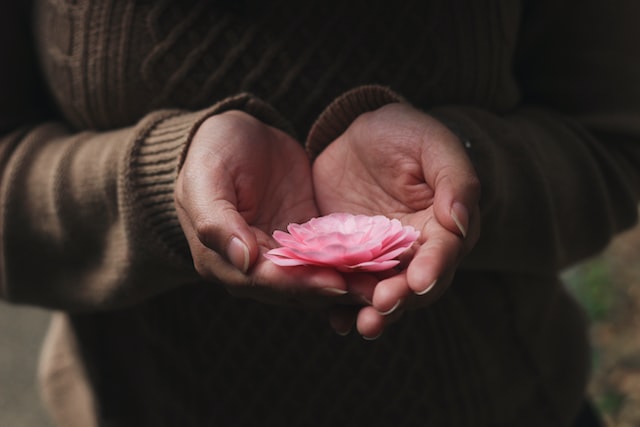Post-Traumatic Growth Experience
Some listeners and readers may be triggered by this content and listener and reader discretion is advised.
Trauma is a tough and frequently life-changing experience that can leave deep psychological scars. It is important to recognize, however, that trauma can inspire positive changes in life. Post-traumatic growth is a phenomenon that is gaining popularity in the world of psychology. Positive psychological improvements that might occur after a traumatic occurrence are referred to as post-traumatic growth.
On the podcast this week, my guest was Nichole Myles. Bringing forward more than 20 years of experience in education, nonprofits, and leadership, Nichole weaves together compelling storytelling with experience and expertise to engage listeners in a journey of self-discovery and what it takes to come back from trauma.
She is an ‘expert companion’ in the position of speaker, facilitator, consultant, or coach, who helps move clients from ‘survivorship’ to ‘thrivorship’.
Having gone from a traditional upper-middle class life to losing everything, living in domestic violence shelters, and having to rebuild an entire life while raising 3 children – Nichole doesn’t just speak about post-traumatic growth, she’s lived it.
“There is no timestamp on trauma. There isn’t a formula that you can insert yourself into to get from horror to healed. Be patient. Take up space. Let your journey be the balm.”
- Dawn Serra
In this post, we’ll look at what post-traumatic growth is, how it happens, and how it can be encouraged. We will also address the significance of learning about this concept and what examples of post-traumatic growth could look like. If you or someone you know has been affected by trauma, this post may help you understand how to heal and put the pieces back together.
What is Post-Traumatic Growth?
Post-traumatic growth (PTG) refers to the positive psychological improvements that can happen following a traumatic occurrence. While it may be contradictory to imagine positive possibilities after going through trauma and traumatic events, it is important to recognize that growth and transformation are possible. Anxiety, depression, and post-traumatic stress disorder are all possible reactions to trauma. Post-traumatic growth differs from conventional trauma responses, because it symbolizes a movement toward increased personal strength, resilience, and meaning in life.

I just want to point out here that post-traumatic growth does not imply forgetting or downplaying the traumatic event. Rather, there is a shift in seeing it as a catalyst for positive improvements in your life. Increased appreciation for life, a deeper feeling of spirituality, a greater ability to sympathize with others, or an expanded sense of personal strength and resilience are all examples of PTG. These positive developments frequently follow a trauma survivor’s efforts to make sense of and find meaning in the traumatic event they experienced.
Post-traumatic growth doesn't happen naturally or quickly. It is a lengthy process that needs considerable effort, contemplation, and time. It might take months, or years, for someone to understand and appreciate the beneficial changes that have occurred because of their traumatic experience. Seeing the potential for growth and being open to the thought that change is possible can be a significant step toward achieving post-traumatic growth.
What Can PTG Look Like?
Following a traumatic event, it is natural to feel a whole host of negative feelings, such as fear, worry, helplessness, shame, guilt, and despair. Despite this, adversity can be a catalyst for personal growth and transformation. And it is possible to experience positive changes after enduring trauma and move into post-traumatic growth.
Increased appreciation for life: Many people gain a deeper appreciation for life and a greater sense of gratitude for the people and things that are most important to them after experiencing trauma.

Improved relationships with others: Trauma can increase empathy and understanding for others, leading to better and more meaningful relationships.
Higher spirituality: For some people, trauma can lead to a stronger feeling of spirituality and a stronger connection to something bigger than themselves.
Improved resilience and personal strength: Trauma can be a catalyst for personal growth, leading to more resilience and personal strength.
Increased sense of purpose and meaning in life: Trauma can cause people to focus on their values, beliefs, and objectives, leading to a stronger feeling of purpose and meaning in their lives.
Not everyone will experience post-traumatic growth, but opening up to the possibility that positive change is possible can be a significant step toward healing.
How Does Post-Traumatic Growth Happen?
Coping methods, support systems, personality attributes, and the ability to find meaning in the traumatic event all contribute to post-traumatic growth. Individuals who use good coping methods following trauma, such as seeking professional treatment or practicing self-care, are more likely to see positive improvements. Having a strong support network of family and friends, as well as practicing self-compassion and finding a sense of purpose and meaning in life, can all help. Your personality and resilience can also influence your potential to experience post-traumatic growth.
Coping mechanisms play an important part in post-traumatic growth. Coping mechanisms are the strategies and skills you use after a traumatic event to manage your emotions, thoughts, and behaviors. Individuals who use healthy coping techniques are more likely to experience positive changes following a traumatic event. This could include getting professional help; taking care of your physical, emotional, and mental health; mindfulness and meditation activities; connecting with others; and having a growth mindset.

Having a strong support system is also a vital part of how post-traumatic growth happens. This can include having good emotional and practical support from family and friends; spending time with loved ones, joining support groups, or taking part in community activities; and having the support of others who have gone through similar experiences.
Another crucial component in post-traumatic growth is the influence of personality and resilience. People who have a positive attitude toward life are more likely to develop post-traumatic growth following trauma. This is because they are better able to find meaning and purpose in adversity. People who have a strong sense of self-efficacy are also more likely to undergo post-traumatic growth because they feel more in control and confident in their ability to overcome adversity.
How to Support Post-Traumatic Growth
Self-care and self-compassion are critical components in promoting post-traumatic growth. Those who have experienced trauma may experience a variety of negative feelings, such as fear, worry, and despair. Self-care and self-compassion can help survivors manage their emotions and encourage healing and growth. This can include taking care of your physical and emotional needs, as well as giving yourself the time and space to heal.
Finding meaning in the experience is also essential for post-traumatic growth. Those who can find meaning and purpose in their traumatic experiences are more likely to experience positive changes, such as improved personal growth, resilience, and a deeper feeling of connection to themselves and others.

Another way to support post-traumatic growth is to seek help from loved ones and professionals. Survivors may feel alienated or disconnected from others, which might slow their capacity to heal and grow. Getting treatment can help survivors get the emotional and practical support they need to better cope with their experiences.
Evidence-based therapies can also be part of your tools to heal from a traumatic experience. Cognitive-Behavioral Therapy (CBT), Eye Movement Desensitization and Reprocessing (EMDR), and Mindfulness-Based Stress Reduction (MBSR) are some methods that have become increasingly popular. You can benefit from these therapies by developing health and effective coping techniques, regulating your emotions, and promoting personal growth and transformation.
The Takeaway
Post-traumatic growth is a positive transformation that can occur following a traumatic event or experience. It entails increasing your resilience, personal growth, and feeling of meaning and purpose in life. You can encourage post-traumatic growth by using healthy coping methods, seeking help from your support network, finding meaning and purpose in the traumatic event, and developing a growth mentality.
It’s important to understand that post-traumatic growth is a process that takes effort, self-reflection, and time. It’s normal to struggle profoundly with the aftereffects of trauma and the right tools and support can help you move toward resilience and personal growth. Understanding post-traumatic growth can help you find ways to heal and experience positive changes after a traumatic event.

There are many resources available for trauma survivors who are looking for extra help. Getting professional support from a therapist or counselor can be a vital step in the healing process following trauma. Joining a support group can also give you a sense of belonging and connection. This can ease feelings of isolation and separation. Therapy and support groups can also be accessed online.
Mindfulness techniques, such as meditation and yoga, can help you regulate your emotions and promote healing and growth.
These techniques can also provide a sense of grounding and centering. It might also be worth having a look at some self-help books. Bessel van der Kolk’s “The Body Keeps the Score” and Judith Herman’s “Trauma and Recovery” give insights on the impact of trauma and strategies for healing and growth.
Whatever you have experienced and no matter where you are on your journey, you deserve to heal and find growth in your trauma!
